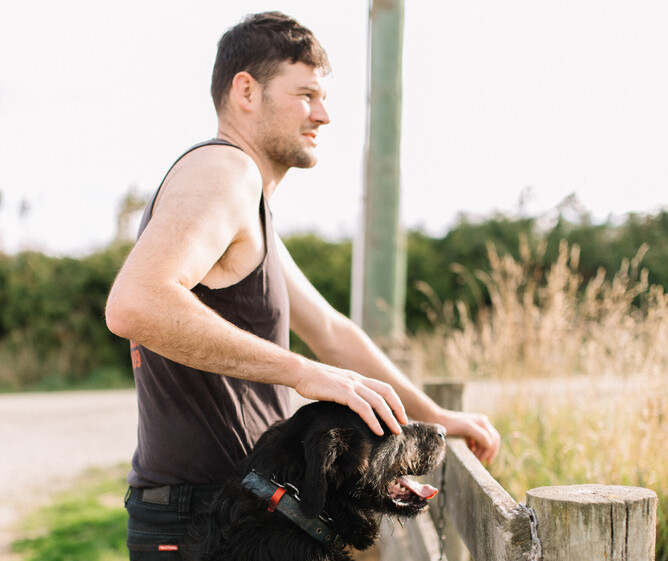Head of Sales and Marketing, Russell MacKay, has a fifth-generation family sheep and beef farm near Queenstown. Here's his farming update as we deal with a rough start to spring for many.
For this edition, I was hoping to tell you about spring bringing a warm breeze on your back, lively lambs sleeping on a bed of thick clover, and my wet weather gear hanging on the hook, unused for some weeks. While that’s not quite the reality yet, brighter days are on the horizon.
In the south, winter was, on the whole, mild and dry. But that's what averages are for, because we've been playing catch-up over the past four weeks with continued cold southerlies bringing snow to low levels and rain to all altitudes. Not good conditions for calves and lambs. At the time of writing, my farm in Southland is headed for the wettest September on record. I know it can be a tad depressing when the tap refuses to turn off, but recording your rainfall on the new app is now simple as – give it a go!
Around the country, the general consensus is that winter went relatively smoothly, with minimal use of the rain jacket. A mate in the Manawatu said he only wore his leggings once this winter. Come late August there were parts of the country, like North Canterbury, that were starting to say, "could do with a drop of rain." The majority of areas have since received that drop of rain and then some. In most places, early calving went well, but late lambing and calving has been affected by the weather. Keeping morale high can be tough when you're picking up plenty of dead lambs.
In terms of prices, dairy farmers are breathing a sigh of (somewhat) relief with most dairy processors announcing lifts in farmgate milk prices. This comes off the back of some lean cashflow statements – I've already seen dairy farmers putting on fertiliser and paying for the helicopter to do so.
The red meat sector is still waiting on good news, with sheep numbers dropping to 23 million as confidence dips and land-use changes kick in. All major suppliers point to China's weak economy as a major factor, but in the same breath they say they're actively looking at other markets to fill the revenue gap, so there is reason to stay hopeful.
This has been a somewhat sombre update when I read back on it! But even with all the struggles at hand, I still consider being a New Zealand farmer the best job in the world. If you're reading this and you've had a mongrel of a time farming lately, ask yourself – is there anything else you could realistically see yourself enjoying for a living?

